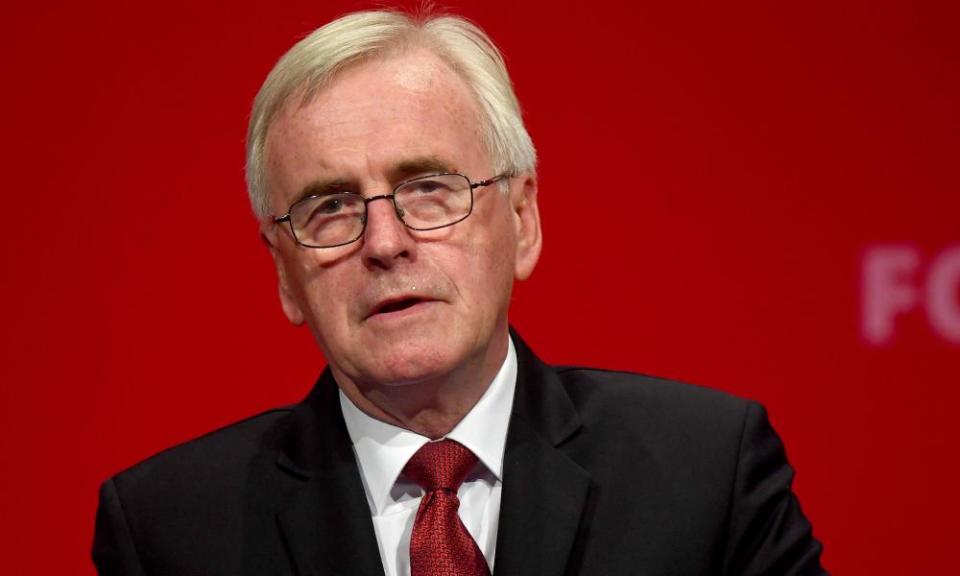Labour plans for utilities would cost the UK £200bn, says CBI

Labour’s plans for a sweeping renationalisation of utilities would cost Britain almost £200bn, the Confederation of British Industry has said.
Branding the plans as “eye-watering”, the nation’s foremost business lobby group, which represents some companies that would be put into state ownership under a Labour government, said the project would add to the UK’s debt levels and could come with costs to pensioners and savers.
It said the plans to take control of the rail network, water and energy companies and the Royal Mail would cost £196bn if investors were paid a premium to sell their assets to the state. It did not say how much it would cost to pay for each industry because it agreed with its members not to publish specific details.
Labour said the analysis was “incoherent scaremongering” and that the CBI had made a series of arbitrary, exaggerated and misguided assumptions.
A Labour spokesperson said: “It is disappointing that the CBI seems incapable of having a grownup conversation about public ownership – which is hugely popular and common across Europe. It sadly reveals that they are more interested in protecting shareholders than in creating a fair economy.”
The CBI said the costs could pay for HS2 more than twice over and was almost the same size as the current health and education budgets combined. It comes after several previous attempts to put a price tag on Labour’s spending plans, with the party facing questions over its ability to manage the public finances.
However, the Conservatives have also faced criticism for their plans to raise spending by taking on additional borrowing. The Institute for Fiscal Studies said last week that Boris Johnson planned to raise spending close to levels indicated by Labour’s 2017 manifesto. It also warned the Tories that pursuing a no-deal Brexit could lift the national debt to levels unseen since the mid 1960s.
To assess the costs of nationalisation, the CBI used the stock market values of public companies that would be bought, and the asset values of private firms from publicly available sources. It applied a 30% premium to the assets because it said this was typical of takeovers. Labour said such a premium was unrealistic.
The lobby group warned that if no premium was paid, UK savers and pensioners would lose about £9bn, or around £327 per household. However, it did not take account of how the top 10% richest have 290 times more in assets than the poorest.
In a warning over the hit to the public finances from nationalisation, the CBI said adding £196bn to the country’s existing debt pile would take the national debt to levels unseen since the 1960s, at more than £2tn or 94% of GDP.
It said such a rise in debt levels would cost the government about £2bn in additional interest payments each year. Britain currently pays about £40bn a year to finance its debt pile.
John McDonnell, the shadow chancellor, has previously said parliament would decide the price the government paid and that nationalisation would cost nothing because it would give the public assets that would generate money.
The CBI did not take account of any profits the government would receive from its nationalised assets, which could offset the £2bn debt servicing cost. The state may even make a profit above those levels.
In one example of profits from national ownership, Royal Bank of Scotland, 62% owned by the government, paid the state £1bn in dividends this year. It had lost money for a decade previously since its bailout in the 2008 financial crisis.
Alfie Stirling, the head of economics at the New Economics Foundation, a leftwing thinktank, said: “The CBI’s analysis fails to assess the possible impact of nationalisation on the public finances in a balanced way. The upfront costs have likely been inflated by the choice of assumptions, and any public income from the newly purchased companies has been excluded from the calculation entirely.”

 Yahoo Finance
Yahoo Finance 